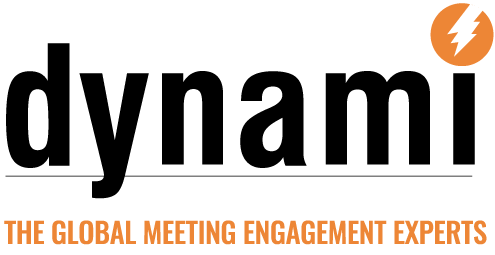Someone near-and-dear to me (who shall remain unnamed) recently attended the World Business Forum (WBF) in New York City as part of her company’s leadership development activities. The conference features highly-regarded thought-leaders from around the world, addressing a variety of topics that impact us all. Included in the guest speaker lineup was Malala Yousafzai, the young Pakistani girl who was shot and left for dead by the Taliban in 2012 because she was campaigning for the rights of girls to obtain an education.
Post-miraculous-recovery, young Malala has continued her fight for educational rights for all, speaking to audiences around the world. Two years ago, she became the youngest winner of the Nobel Peace Prize at the way-tender age of 16.
Needless to say, Malala was inspiring at the WBF! And she-who-shall-remain-nameless came home deeply moved and motivated to do her part to change the world.
Which brings me to my point – Are you doing your due diligence when researching, booking and managing your keynote speakers? Or are you simply buying “off the shelf” and taking whomever a speaker bureau happens to recommend?
Identifying and securing the perfect speaker for your next event needn’t be complicated but it does require some quality thinking before inking a contract.
Here are 6 Tips for Choosing the Perfect Keynote Speaker …
1. Set Your Conference Speaker Up for Success!
When your attendees discover a guest speaker is on the agenda, they expect to hear something of great interest. They don’t want to be bored, they want to learn something. By the same token, your speaker wants to deliver on that expectation – but unless they’re already an expert in your industry and/or your organization, you owe them guidance and insight so they can be on top of their game when they reach the dais.
Schedule a meeting, conference call or Skype session to fully brief your keynote speaker in advance of the event. Share audience demographics, your company’s recent performance, key messages to be delivered by senior leadership, issues and “hot buttons”, industry trends, upcoming initiatives and priorities, etc. And by all means, explain to the speaker why they were selected. Clearly articulating expectations will help them hone and shape their message so it’s received by your audience as a speech written only for them.
2. Identify Ways You Can Avoid the “Revival Tent” Drop-Off.
How many times have you been juiced and jazzed by a powerfully delivered keynote and you were ready to change the world? How long did that last?
It’s a common challenge country preachers of old faced when they conducted tented revivals in open fields on sizzling, steamy summer nights when funeral home-sponsored hand fans were a thing of necessity. Congregations were moved and inspired by the words and the message but all that quickly wore off as they jockeyed for position in the dusty parking lot with some stubborn S.O.B. who wouldn’t let them in the line of cars to exit.
Seek ways to keep the elevated spirit alive long after the keynote speaker has earned his or her standing ovation. Give some quality thought as to how you can sustain and build on that momentum.
Consider “repurposing” your speaker. Have them speak one day then conduct a workshop the next. Ask them to conduct a post-speech Q&A session or lead a panel discussion. Another thought is to have them lead a VIP session of event sponsors or your highest-achievers. Bringing together an elite group of 10-12 is an opportunity for special recognition and a great way for honorees to get some “up close and personal” time with the featured keynote. When you use your speaker in multiple ways, you not only reinforce their key message(s), you achieve greater “bang for your buck”.
And work with them to develop a customized curriculum that can be delivered to your people in the weeks and months following their speech. In most cases, motivational speakers are charged with helping to change the behavior of the audience for the better. This typically takes more than 45 minutes on a stage.
3. Invite a Customer, a User, a Patient to Be Your Keynote Speaker.
If your company sells a product or service that improves the quality of people’s lives, use your keynote speaker slot on the agenda to showcase a meaningful success story. Have a customer or a user – whomever is the beneficiary of your company’s offerings – take the stage.
For instance, if you sell a software, bring in a representative of a non-profit to share how they benefited from it. Or, if you work in the medical arena and sell topical wound-care dressings, ask a patient (or the parent of a patient) to join your conference and share their story.
Delivered from a first-person perspective, this can be very powerful and remind your audience that what they do in their day-to-day jobs is meaningful and important. There’s no substitute for that kind of inspiration!
4. Consider Booking Multiple Speakers for Your Event.
Assuming your agenda has room for this, as well as your budget, consider booking more than one speaker.
An example: For a three-day conference, have an industry expert (university professor, respected business commentator, etc.) address your group on Day 1. On Day 2, slot in a futurist who can identify emerging trends for the next 3, 5 and 10 years. On Day 3, your wrap-up day, have someone truly inspiring and motivational who can bring your audience up, up, up and close the conference on a soaring note – then seek ways to sustain and build upon that as we mentioned earlier.
5. Be Kind to Your Keynote Speaker.
Your keynote speaker wants to give you his or her best so be kind to them. Carefully read their talent rider and ensure you’re, at a minimum, honoring their stated needs. Have someone greet them at the airport and/or at the front of the meeting venue when they arrive. Room-drop a personalized note letting them know how excited the audience is to hear them speak. Be sure to schedule a few minutes for them to get “the lay of the land” and walk the stage. If payment is expected upon arrival, personally hand them a check for their speaking fees, and thank them for being an important part of your program.
6. Generally Speaking, Keynote Speakers Shouldn’t Be General.
If business events existed only to deliver entertainment, booking a keynote speaker would be a breeze. But if your company or client is investing $15k, $20k, $25k or more, you can bet there’s a clear expectation your speaker will deliver a poignant and insightful message that will have a meaningful and measurable impact on your sales and marketing efforts.
With that in mind, you should seriously research speaker options to find someone who can speak knowledgably about your industry, social/business/government trends affecting it, and deliver tips and solutions that can re-energize your efforts when you return to your job.
In closing, if your attendees leave the event venue after the keynote noticeably wiser and better equipped to do their jobs, your speaker has done his or her job. Keynote speakers don’t have to be world-changers but they do need to be difference-makers!
CONCLUSION
Booking your next keynote speaker needn’t be complicated … but it does require some quality thinking.
Related Post
P.S. One more thing! Never, never, never book a keynote speaker during a meal event. Audiences don’t like it and your speaker doesn’t want to compete with clinking glasses and hustling wait staff. In a word, it’s disrespectful to all.





